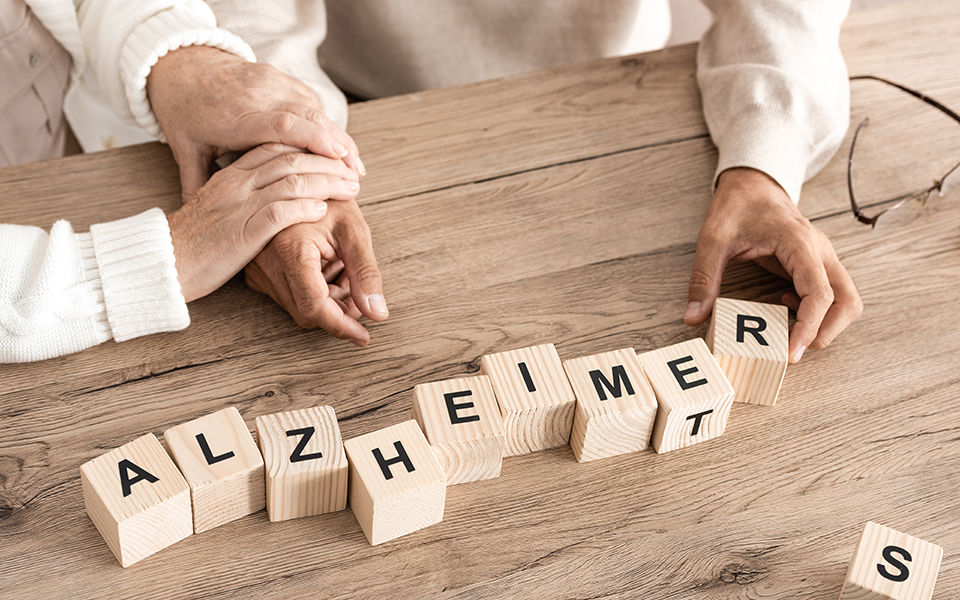As they progress through Alzheimer’s disease, people may experience trouble with communication. Learning about those obstacles will help you change your approach to interacting with any loved one suffering from the disease.
Aphasia
This condition is characterized by difficulty expressing and understanding language. Your mom may be unable to formulate an appropriate response to questions, or she may have trouble following your conversation. Symptoms of aphasia include frequent pauses in speech, incorrect word substitutions and mixing up letter and word sounds.
How you can help:
- Face your mom and speak slowly and clearly.
- Use simple words and short sentences.
- Give her plenty of time to process your words and formulate a response.
- Include non-verbal communication like hand gestures and facial cues to illustrate your meaning.
RELATED ARTICLE: Stages of Dementia: Planning for What’s Ahead
Apraxia
If your dad has apraxia, he’ll likely have trouble with body movements and completing physical tasks. The condition occurs when the brain can’t send the correct signals to move muscles. Your dad may have the intention and strength to do something like pick up a book, but his brain may not be able to coordinate the nerve signals properly. This condition also affects chewing and swallowing, making mealtime difficult.
How you can help:
- Model movements to help your dad understand and complete tasks.
- Guide his hands through activities if he continues to struggle.
- Encourage your dad to consider occupational therapy, which addresses activities of daily living (ADL).
Agnosia
This condition involves forgetting everyday objects and how to use them. It can also affect your mom’s ability to recognize faces. There may be nothing wrong with her eyesight or other senses, but her brain can’t properly interpret the data or mesh perception, identification and memory skills with agnosia.
How you can help:
- Point to objects you’re referencing.
- Demonstrate how to use an object if your mom is struggling to interact with it.
- Use pictures to identify family and friends during a conversation.
- Recommend speech and occupational therapies, which can ease agnosia.
RELATED ARTICLE: Mitigating Cognitive Decline in Seniors
Anomia
Isn’t it frustrating when the right word is on the tip of your tongue, but you can’t seem to express it? That’s what it’s like to have anomia. You may notice your dad follows conversations but can’t find the right phrase to respond appropriately. Anomia is caused by damage to the brain’s language center in the left hemisphere.
How you can help:
- Be patient and give your dad time to finish his thought. He’ll likely be able to find the right words if he’s in the early stages of Alzheimer’s disease.
- Provide suggestions if words continue to elude him.
- Make replying easier by avoiding open-ended questions.
- Show your dad the objects you’re talking about if he needs to choose between items.
Amnesia
Your mom may have trouble processing new information as her Alzheimer’s progresses. Amnesia is different from age-related forgetfulness. You’ll notice your mom struggles to access short-term memories and might begin to mix up long-term memories, too. Amnesia makes it difficult to follow directions and complete tasks.
How you can help:
- Don’t walk away if you’ve given directions for a task, as your mom may have questions.
- Provide polite reminders and clarify details if she gets confused.
- Make lists, write notes and label items for her.
- Use personal items and photos when referencing long-term memories.
Embassy Healthcare offers dedicated dementia care to address your loved one’s unique needs. Contact us online or call 216-378-2050 for guidance on Alzheimer’s disease.

